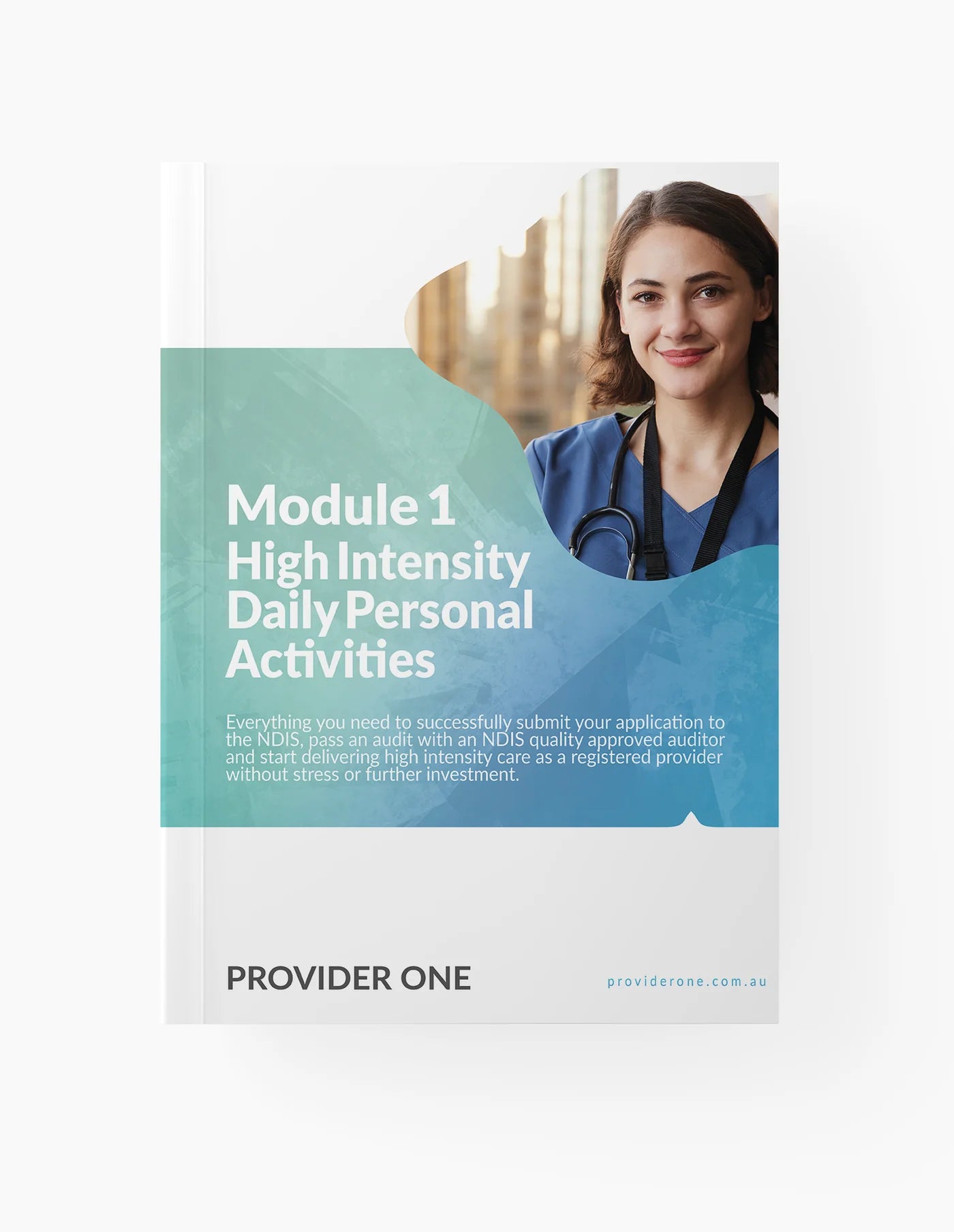Revised High Intensity Support Skills Descriptors for 2023
The Significance of High Intensity Support Skills Descriptors (HISSD)
The High Intensity Support Skills Descriptors (HISSD) serve as a critical component within the broader NDIS Quality and Safeguards Framework. Specifically, Module One of the HISSD focuses on foundational skills, providing a framework for support workers to build upon as they engage in high-intensity support services for NDIS participants. The descriptors outline the key competencies and qualities necessary to deliver effective and person-centred care.
Revisions to HISSD for Module One in 2023
The NDIS Quality and Safeguards Commission’s revised high intensity support skills descriptors (HISSD) came into effect on 1 February 2023. The descriptors guide providers and auditors on the skills, training and practice required to prepare and deliver the High Intensity Daily Personal Activities Module. These supports present some of the highest risks for participants, such as complex bowel care, enteral feeding support, dysphagia support, ventilator support, tracheostomy support, urinary catheter support, subcutaneous injections, complex wound care, and epilepsy and seisure support. The revised descriptors support the NDIS practice standards in Module 1 – High Intensity Daily Personal Activities. Below, we highlight some of the key changes to each revised high intensity support skills descriptor:
- Complex Bowel Care
- Previous Criteria: The previous HISSD might have outlined the basic skills required for bowel care support, focusing on hygiene, awareness of individual needs, and adherence to established protocols.
- Revised Criteria: The updated HISSD now places a greater emphasis on advanced skills related to complex bowel care. Support workers are expected to demonstrate proficiency in managing complex bowel conditions, understanding, and implementing specialised care plans, and collaborating with healthcare professionals to ensure comprehensive and individualised care.
- Enteral Feeding Support
- Previous Criteria: The previous descriptors covered fundamental aspects of enteral feeding support, including proper technique, hygiene, and the ability to follow prescribed feeding plans.
- Revised Criteria: In the revised HISSD, there is an increased emphasis on the advanced aspects of enteral feeding support. Support workers are now expected to possess a deeper understanding of different enteral feeding methods, troubleshoot common issues, and adapt feeding plans based on individual participant needs and dietary requirements.
- Dysphagia Support
- Previous Criteria: The earlier criteria focused on basic dysphagia support skills, such as assisting with modified diets, ensuring proper swallowing techniques, and recognising signs of aspiration.
- Revised Criteria: The revised HISSD introduces a more comprehensive approach to dysphagia support. Support workers are expected to possess advanced knowledge of dysphagia management, collaborate with speech therapists and dietitians, and implement strategies to enhance safe swallowing and prevent complications.
- Ventilator Support
- Previous Criteria: The previous descriptors covered fundamental ventilator support skills, including monitoring equipment, responding to alarms, and basic troubleshooting.
- Revised Criteria: The updated HISSD includes more advanced criteria for ventilator support. Support workers are expected to demonstrate proficiency in managing complex respiratory conditions, understanding various ventilator settings, and collaborating closely with respiratory therapists and medical professionals to ensure optimal respiratory care.
- Tracheostomy Support
- Previous Criteria: The earlier criteria outlined basic skills related to tracheostomy care, focusing on hygiene, suctioning techniques, and recognising signs of complications.
- Revised Criteria: In the revised HISSD, there is an increased emphasis on advanced tracheostomy support. Support workers are expected to possess in-depth knowledge of tracheostomy care, troubleshoot issues, and collaborate effectively with healthcare professionals to manage complex tracheostomy conditions.
- Urinary Catheter Support
- Previous Criteria: The previous descriptors covered basic skills related to urinary catheter support, including hygiene, catheter maintenance, and monitoring for signs of infection.
- Revised Criteria: The revised HISSD introduces more advanced criteria for urinary catheter support. Support workers are expected to demonstrate proficiency in managing complex urinary conditions, understanding different catheter types, and collaborating with healthcare professionals to prevent complications and ensure individualised care.
- Subcutaneous Injections
- Previous Criteria: The earlier criteria focused on fundamental skills related to subcutaneous injections, including proper injection technique, hygiene, and monitoring for adverse reactions.
- Revised Criteria: The updated HISSD includes advanced criteria for subcutaneous injections. Support workers are expected to demonstrate a deep understanding of medication management, administer injections with precision, and respond effectively to potential complications, collaborating closely with healthcare professionals as needed.
- Complex Wound Care Support
- Previous Criteria: The previous descriptors covered basic wound care support skills, including wound cleaning, dressing changes, and monitoring for signs of infection.
- Revised Criteria: In the revised HISSD, there is an increased emphasis on advanced wound care support. Support workers are expected to possess in-depth knowledge of wound management, collaborate with wound care specialists, and implement advanced strategies to promote optimal wound healing and prevent complications.
Further Revisions
The revisions to the HISSD for Module One in 2023 also bring about a range of changes that reflect the evolving landscape of the disability sector and the need for adaptability in service provision. The following key modifications have been introduced:
- Elevated Emphasis on Person-Centred Practices: The revised HISSD places a heightened emphasis on person-centred approaches, recognising the unique needs, preferences, and aspirations of each NDIS participant. Support workers are now expected to demonstrate a deep understanding of the individual they are supporting, fostering a collaborative and empowering relationship that goes beyond a one-size-fits-all model.
- Inclusive and Accessible Communication: Communication lies at the heart of effective support services. The revised HISSD acknowledges the importance of inclusive and accessible communication. Support workers are now required to hone their communication skills, ensuring that they can engage with participants in a manner that is easily understood and tailored to individual communication preferences.
- Integration of Technology Competencies: Acknowledging the increasing role of technology in support services, the revised HISSD introduces criteria related to technological proficiency. Support workers are expected to be adept at utilising assistive technologies, electronic documentation systems, and other relevant tools that enhance the efficiency and effectiveness of support delivery.
- Cultural Competence and Diversity Sensitivity: The disability sector is diverse, with participants from various cultural backgrounds. The revised HISSD explicitly includes criteria related to cultural competence and diversity sensitivity. Support workers must demonstrate an understanding of cultural nuances, adapting their approaches to align with the diverse needs of participants.
- Advanced Risk Assessment and Management: Managing risks effectively is paramount in high-intensity support services. The updated HISSD places a greater emphasis on advanced risk assessment and management skills. Support workers are expected to proactively identify potential risks, implement preventive measures, and respond decisively to emerging challenges to ensure the safety and well-being of NDIS participants.
- Holistic Professional Development: Recognising the dynamic nature of the disability sector, the revised HISSD encourages a holistic approach to professional development. Support workers are expected to engage in ongoing learning opportunities that encompass not only technical skills but also broader competencies such as empathy, resilience, and adaptability.
Impact on Service Providers
The introduction of the revised HISSD for Module One in 2023 brings both challenges and opportunities for service providers within the NDIS framework.
- Investment in Training and Development: The elevated expectations outlined in the revised HISSD necessitate a strategic investment in training and development programs. Service providers must equip their support workers with the skills and knowledge required to meet the new criteria. This may involve partnering with training institutions, developing in-house training modules, or providing access to external resources.
- Revision of Policies and Procedures: To align with the updated HISSD, service providers are required to review and revise their existing policies and procedures. This includes incorporating new protocols for communication, technology use, cultural competence, and risk management. The goal is to ensure that organisational practices are in sync with the latest standards, fostering a culture of continuous improvement.
- Recruitment and Retention Strategies: The revised HISSD may impact the recruitment and retention strategies of service providers. With an emphasis on advanced skills and competencies, providers may need to reassess their recruitment criteria and actively support the ongoing professional development of their workforce to retain skilled and knowledgeable support workers.
- Quality Assurance Mechanisms: Ensuring compliance with the revised HISSD requires robust quality assurance mechanisms. Service providers should implement monitoring and evaluation processes to assess the effectiveness of support services, identify areas for improvement, and demonstrate a commitment to delivering high-quality care.
Impact on NDIS Participants
The primary beneficiaries of the revised HISSD for Module One are the NDIS participants themselves. The changes introduced aim to enhance the overall experience of participants receiving high-intensity support services.
- Individualised and Empowering Support: The heightened focus on person-centred practices ensures that NDIS participants receive support that is truly tailored to their individual needs, goals, and preferences. This shift from a standardised approach to a more individualised one empowers participants, allowing them to actively participate in decision-making processes related to their care.
- Improved Communication and Understanding: The emphasis on inclusive and accessible communication means that participants can expect support workers who are skilled at conveying information in a way that suits their unique communication styles. This promotes clearer understanding, reduces misunderstandings, and strengthens the relationship between participants and support workers.
- Culturally Responsive Care: The inclusion of criteria related to cultural competence and diversity sensitivity ensures that participants from diverse cultural backgrounds receive care that respects and embraces their cultural identity. This fosters an environment of inclusivity, where participants feel seen, heard, and understood in the delivery of support services.
- Enhanced Safety Measures: The advanced focus on risk assessment and management contributes to the safety and well-being of NDIS participants. Support workers, equipped with the skills to identify and address potential risks, create a more secure environment, minimising the likelihood of adverse events and ensuring that participants feel safe in their support arrangements.
- Integration of Technology for Efficiency: Participants can benefit from the integration of technology competencies into support services. This may include the use of assistive technologies that enhance communication, accessibility, and overall service efficiency. Participants can expect a more streamlined and technologically advanced support experience.
The changes made in the revised High Intensity Support Skills Descriptors for Module One in 2023 reflect a commitment to elevating the standards of care provided to individuals with complex needs. By introducing more advanced criteria for various support areas, the NDIS aims to ensure that support workers possess the specialised skills and knowledge necessary to deliver high-quality, individualised care in these critical areas of support. These changes underscore the evolving nature of the disability sector and the ongoing efforts to enhance the quality, safety, and effectiveness of support services.
Regulatory Context
The revised skills descriptors provide more detailed guidance about the expectations of workers and align with the requirements in Module 1 of the Practice Standards. If your organisation provides High Intensity Daily Personal Activities supports, auditors may use the skills descriptors as guidance when performing a quality audit.
Who are the Skills Descriptors for?
The Commission has developed the skills descriptors for use by participants, auditors, providers, workers, and trainers. For participants, they are useful for understanding the standard of care expected by the Commission and using this information to assess their provider’s performance. For providers, workers, and trainers the skills descriptors provide a standard by which skills and knowledge can be benchmarked.
How We Can Help
Following the release of the revised skills descriptors, we have developed a significant set of changes to our Module 1 – High Intensity Daily Personal Activities Pack to ensure that we continue to align with the requirements of the NDIS and your NDIS approved auditor. You can view the inclusions of our revised of our Module 1 – High Intensity Daily Personal Activities Pack by clicking here.
If you have any questions about our packs or the recent changes, please contact us at info@providerone.com.au



Leave a comment
This site is protected by hCaptcha and the hCaptcha Privacy Policy and Terms of Service apply.